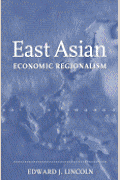Editor’s Note: On September 16, 2014, Mireya Solis gave a speech originally titled “What does it take to create a society where women shine: Reflections from Japan” at “WAW! Tokyo 2014 Shine Weeks Event at Saitama,” an event hosted by Josai University in Saitama Prefecture. This event was one of the activities held in conjunction with the World Assembly for Women in Tokyo.
Thank you very much, Governor Ueda, for all the work that Saitama Prefecture is doing to advance the economic participation of women. I appreciate very much, Chancellor Mizuta, your kind invitation to come to Josai University and I want to thank everyone in the audience for a very warm welcome.
These are exciting times in Japan. We are all watching a national dialogue take place on how to realize the potential of women, on how to ensure that women can make meaningful contributions in all areas of society. This is a dialogue based on a fundamental insight: excluding half of its population is a self-defeating proposition, and the future of Japan is tied to the goal of fully realizing the potential of its women. This is a goal of the highest order.
I have a confession to make: for a long-time Japan watcher like me, it still seems like a dream that Japan is undertaking this major effort to unleash the power of women; to make women a key agent for economic growth; to elevate female voices in the highest levels of decision making; to promote women as leaders in their local communities. I think that the key challenge ahead of us is clear: how do we make sure that dream becomes a reality?
Today, I would like to offer some reflections on this very important question for Japan and the world: What does it take to create a society where women shine?
It seems to me that a key ingredient for success is the concerted action of many different sectors of society. In other words, different actors in society have different contributions to make, and what we should aim for is the synergy that comes from the cumulative effect of multiple efforts that seek to realize the potential of women.
Let me briefly illustrate the role that different actors can play.
Central Government
We are witnessing in Japan the key leadership role that the central government can play by elevating the women’s empowerment agenda to become a central priority: womenomics is essential to the success of Abenomics, and Abenomics is essential to Japan’s economic revival.
- The central government can provide a focal point by setting targets in promoting women to positions of leadership.
- And the central government can also lead by example by following through with appointments of women to Cabinet positions as well as senior positions in the national civil service.
- The central government can promote tax and social security policies that are neutral and do not create a disadvantage for married women who want to work.
- And very importantly too, the central government can introduce labor market reforms that ameliorate the strong duality of the Japanese labor market. More than 30 percent of employees in Japan are non-regular workers, and the vast majority of non-regular workers are female. This means that many women in Japan are in dead-end jobs. So the government can do much to bring parity between regular and non-regular workers by making sure there is greater equality in hourly wages, social security benefits, and unemployment protection.
Private Sector
The private sector is a fundamental force in empowering women. Corporations and managers can make a big difference by:
- Promoting and implementing a culture of shorter working hours by instilling the principle that what counts is productivity, not the amount of hours you spend in the office.
- Developing flexible working arrangements and deploying technology to allow people to work remotely.
- Dedicating efforts to the hiring, mentoring, and promotion of women. An important step in this direction would be to adopt a single, open-ended contract to eliminate the distinction between managerial and non-managerial employees. In that way, we will not be asking young women fresh out of college to make a decision that will irrevocably affect their career path.
But local governments also have very important and unique roles to play.
Local governments
At the high-level round-table of WAW! Tokyo 2014, that I had the privilege to attend last weekend, I had the pleasure to meet Ms. Fumiko Hayashi, the mayor of Yokohama City. I was deeply impressed by her very successful campaign to eliminate the waiting lists for the city’s childcare centers. To me, this illustrates the critical role that local governments can play in advancing the position of women in society:
- From the example of the city of Yokohama, it is possible to say that local governments can act as policy incubators. They can lead by developing pioneer programs that can be tested on a smaller scale and then deployed throughout the nation.
- Local governments can also help by playing the role of transmission belts. Because local governments are more attuned to the needs of their communities, they can customize national policies to better match local realities. They can also mobilize their communities to work towards implementing policies that seek the advancement of women.
- A very important contribution of local governments is the promotion of local female leaders. We know how powerful role-models are. When young women see other women break the glass ceiling, not only are they inspired, but they also gain confidence that they too can aspire to those positions. “If she can do it, I can do it.” It is very important to have female leaders on the international stage and at the national government level. There is no question that they make a very important and meaningful contribution. But to be quite frank, for many women the role of female leaders at the international and national government levels may be too removed, too distant from their own aspirations. However, if they see female leaders in their local communities, if they see how these women are working to improve everyone’s daily lives in their communities, it will be possible to send an even more powerful message to women to also step up and have a larger voice in their community.
So, commitment from all corners of society will be necessary to achieve the goal at hand. But I think that at a deeper level a spirit of helping one another will also be essential.
Please let me explain what I mean by helping one another:
Women helping women
These were the very wise words used by one of the participants in the high level round-table to describe the benefits of promoting home day care centers in Japan. They would certainly increase the number of choices available for families with working parents, but, at a more fundamental level, home day care will also allow women to help other women. The care provider that opens her house to look after two or three children will help young mothers to return to work; and in turn these women will help the home day care provider to find a second career after she has perhaps finished raising her own kids.
But there are many other ways in which women can help women. A very straightforward way is by mentoring other women. In my field—as is common in so many professional settings—women are frequently the minority. In countless meetings I have been the only woman in the room. I can tell you from experience that it is very important to avoid a sense of false pride, of feeling very special for being the only woman among a group of senior male colleagues, “the one that broke the glass ceiling.” On the contrary, if you are the only woman in the room, it is imperative that you endeavor to mentor younger female colleagues so they can in the future participate in high level meetings. One woman alone cannot change institutional inertias or established practices. You need a critical mass of women to achieve genuine diversity.
Men helping women
The reality is that men are by and large at the top in Japanese corporations. So, as Kathy Matsui has compellingly argued, we need male champions of women. Senior male executives could make a big difference by mentoring female employees with great potential. We need to open up the Old Boy Networks.
But there is another important way in which men can help women: by taking on more of the responsibilities at home with childcare and housework. I recently came across a very interesting study by a group of economists that were trying to determine why some countries (but not others) are able to reach a virtuous cycle of greater female workforce participation and higher fertility rates.[1] Mind you, this is the key question that Japan faces. And after testing many standard explanations, these economists concluded that the most important factor is men’s contributions on the home front: the amount of time they devote to childcare and house chores. Women can’t do everything on their own, we need men to help us.
Women helping men
There has been a lot of discussion about how women in Japan have great difficulty in achieving work-life balance. And that is very true. But I would submit to you that men in Japan do not enjoy work-life balance either. The long working hours make it very hard to nurture their connection to their families and to pursue their personal interests.
Many of the labor market reforms and employment practices that are under discussion to allow women to increase their participation in the economy will not only help women, but men as well. Shorter working hours, flexible labor markets that allow people to find new jobs and to start second careers, are not women-only benefits. These are changes that will also improve the lives of men.
Women helping themselves
Here, I would recommend two things:
- Be your own best advocate. Frequently when I meet with young women to discuss the womenomics reforms, they describe the changes they expect the government and corporations to carry out. But I think it is best to take the initiative and not wait for the action to spring from others. There are concrete things you can do now. For instance, seek skill accreditation. In my own experience, having professional titles has helped in many occasions to overcome potential prejudice regarding the competence of women. Or, start by making it a point of raising your hand and contributing to every meeting you attend. You must have a voice.
- Be your own best friend. I think it is important to be realistic and to choose wisely your points of reference. My best advice for working mothers is not to compare themselves to single employees or stay-at-home mothers. You have a different set of responsibilities, of time management demands. You are on a different and equally valid journey—one full of its own challenges and very especial joys.
In closing, let me just say that every female professional trying to break the glass ceiling, every working mother trying to navigate the myriad choices that go into nurturing a family and building a successful career can relate to the aspirations, dreams, and challenges that Japanese women face at this critical juncture. For all of us, both inside and outside Japan, change comes when society recognizes that curtailing a woman’s creative and productive potential amounts to much more than an individual loss; it undermines economic dynamism, it foregoes the creative opportunities of a more diverse workplace. And for each one of us striving for work-life balance comes the added responsibilities of managing multiple professional and personal demands on our time, of seeking out every chance for professional development, and of gaining confidence about the value of the contributions we make. Japan’s campaign to create a society where women can shine is a universal quest; Japan’s success in this endeavor will be a widely shared success.
[1] James Feyrer, Bruce Sacerdote, and Ariel Dora Stern, “Will the Stork return to Europe and Japan? Understanding Fertility within Developed Nations,” Journal of Economic Perspectives 22, no. 3 (2008): 3-22.
The Brookings Institution is committed to quality, independence, and impact.
We are supported by a diverse array of funders. In line with our values and policies, each Brookings publication represents the sole views of its author(s).








Commentary
Empowering Women in Japanese Society
September 16, 2014